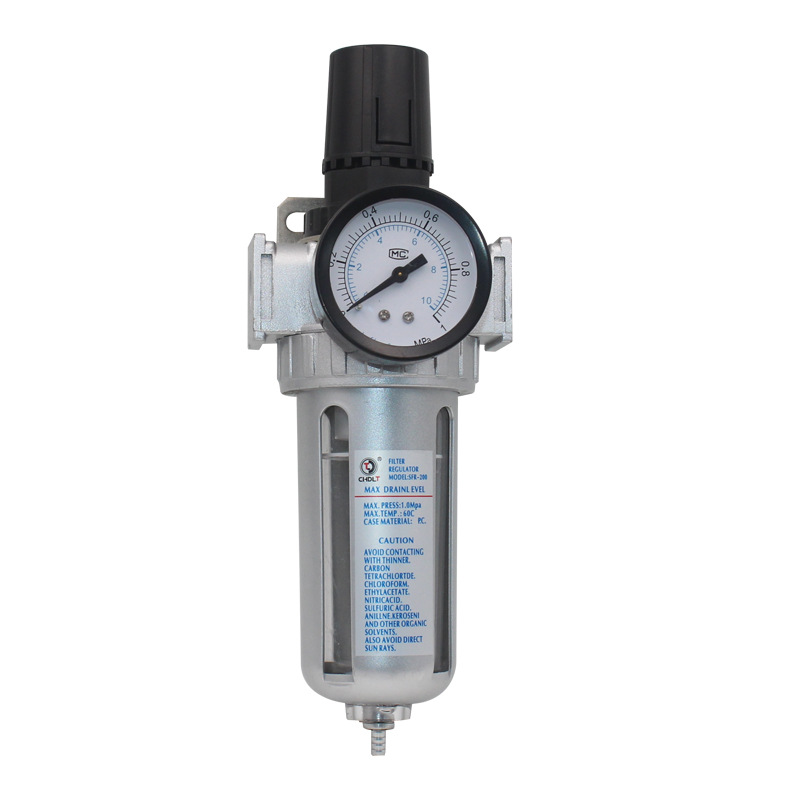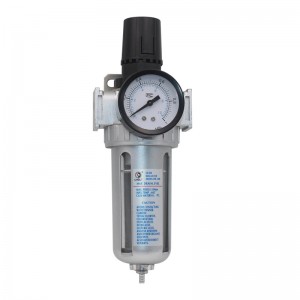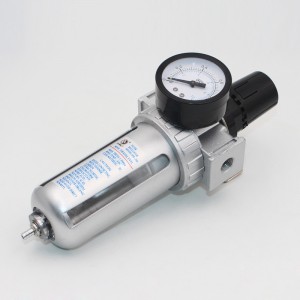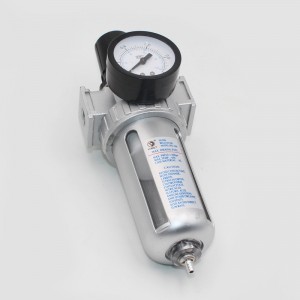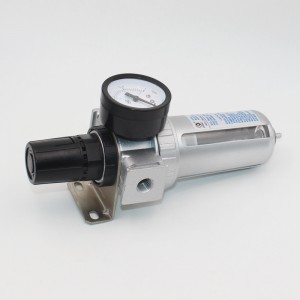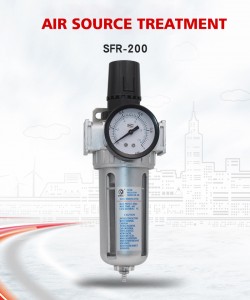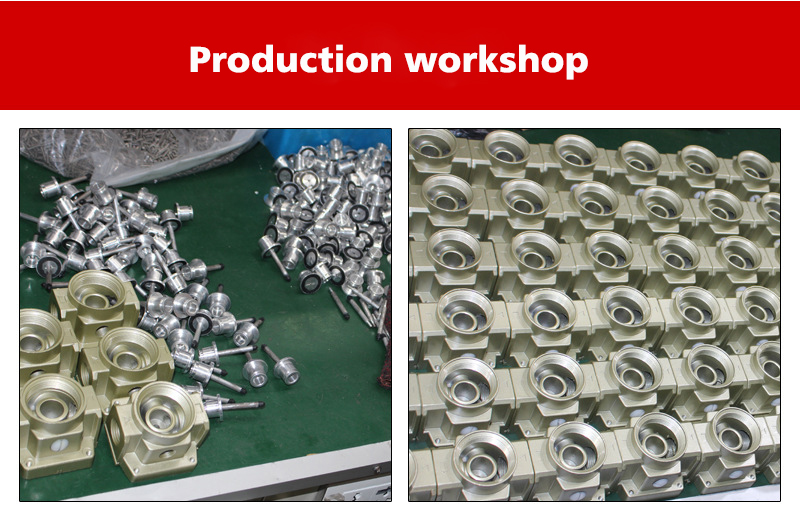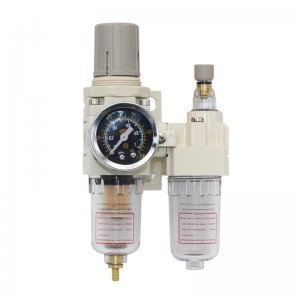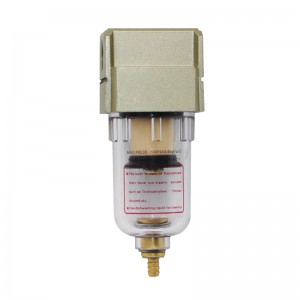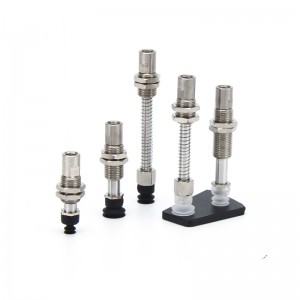SNS type Frl Unit Compressed Air Source Treatment Three Unit SFR-200
Selection Attention
1. How to choose the filter according to the amount of flow?
Select the appropriate flow rate according to the air consumption of the downstream equipment. Generally, we choose a filter that is slightly larger than the actual air consumption to avoid insufficient air volume and affect the operation of the equipment.There is no need to select a filter with an excessive flow rate, which will cause waste. (Refer to the flow table below for the specific flow of the product)
| Air source processor model | Interface thread | Flow |
| AC2000/AFC2000 | 1/4 =2″ | 500L/min |
| AR/AFR/AF/AL2000 | 1/4 =2″ | 500L/min |
| BC/BFC/BF/BR/BFR/BL2000 | 1/4 =2″ | 2000L/min |
| BC/BFC/BF/BR/BFR/BL3000 | 3/8=3″ | 3000L/min |
| BC/BFC/BF/BR/BFR/BL4000 | 1/2=4″ | 4000L/min |
2. How to choose the filter accuracy of the filter element?
The pore diameter of the filter element of the filter determines the filtration accuracy of the filter. Because the downstream equipment has different requirements for the quality of the gas source. For example, metallurgy, steel and other industries do not have high requirements for gas quality, so you can choose a filter with a larger filter pore size. However, industries such as medicine and electronics have high requirements for gas quality. We can choose precision filters with very small filter pores.
3. How to choose drainage method?
The drainage method of our air source processor is divided into automatic drainage, differential pressure drainage, and manual drainage. Automatic drainage can be divided into two types: pressure-free opening and pressure- free closing. Pressure-differential drainage is mainly to open drainage when pressure is lost.
Use occasions: Fully automatic drainage is generally suitable for pipelines that are inconvenient for personnel to control, such as high and narrow places where people do not often reach, and pipelines where downstream gas cannot be stopped. Differential pressure drainage is generally suitable for pipelines that are convenient for personnel to control, such as the pipeline outside the machine, near the operating table, and downstream gas can be suspended.
4. Three different drainage methods
Manual draining: Twist the plastic head of the cup with water, to the “0″, way is to drain, after the drain is finished, tighten it to the “S” direction
(A) Differential pressure drainage: automatic drainage when there is no air intake, and the drainage port needs to be manually pushed up to drain when air intake
(D) Automatic drainage: When the water level in the cup rises, the piston automatically lifts to achieve the drainage function
(2000D) Differential pressure drainage: when manually draining, you can automatically drain by pressing the manual twist, and the components can be automatically reset after draining.
Specification
| Proof pressure | 1.5Mpa{15.3kgf/cm²} |
| Max. working pressure | 1.0Mpa(10.2kgf/cm²} |
| Environment and fluid temperature | 5~60℃ |
| Filter aperture | 5μm |
| Suggest oil | SOVG32 Turbine 1 oil |
| Cup material | Polycarbonate |
| Cup hood | AC1000~2000 withoutAC3000~5000 with(lron) |
| Pressure regulating range | AC1000:0.05-0.7Mpa(0.51-7.1kgf/cm²)AC2000~5000:0.05~0.85Mpa(0.51~8.7kgf/cm²) |
Note:there are 2,10,20,40,70.100μmfor choose
| Model | Specification | ||||
| Minimum operating flow | The rated flow(L/min) | Port size | Cup capacity | Weight | |
| AC1000-M5 |
4 |
95 |
M5x0.8 |
7 |
0.07 |
| AC2000-02 |
15 |
800 |
1/4 |
25 |
0.22 |
| AC3000-02 |
30 |
1700 |
1/4 |
50 |
0.30 |
| AC3000-03 |
40 |
5000 |
3/8 |
50 |
0.30 |
| AC4000-03 |
40 |
5000 |
3/8 |
130 |
0.56 |
| AC4000-04 |
50 |
5000 |
1/2 |
130 |
0.56 |
| AC4000-06 |
50 |
6300 |
3/4 |
130 |
0.58 |
| AC5000-06 |
190 |
7000 |
3/4 |
130 |
1.08 |
| AC5000-10 |
190 |
7000 |
1 |
130 |
1.08 |

